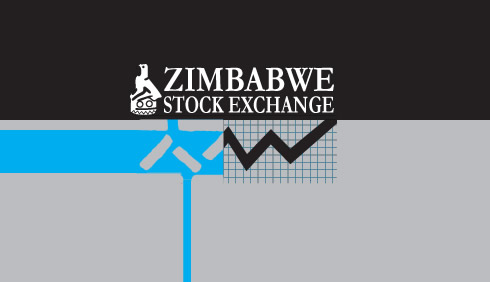Earlier this week Zimbabwe Revenue Authority commissioner general Gershem Pasi proposed that the Government should receive a percentage of mining companies' mineral output as a form of tax payment.
He said this would help in widening the country's revenue base.
Although the idea does not have much precedence in most countries across the globe, it however points to the one of the (unconsidered) ways in which the Government can leverage on the mining sector to boost the economy.
A shocking statistic given by Pasi on how Africa is benefiting from its precious minerals was that the mining sectors is presently contributing less than 3 percent to the host countries' economies yet they contribute more than 75 percent to the economies of those countries where they end up in.
This is despite the fact that mining sector in Africa constitutes one of the largest industries in the world. Africa is the second biggest continent, with 30 million km² of land, which implies large quantities of resources, but the continent is yet to reap significant benefits from its minerals.
There is need for the Zimbabwean Government - as one case in point - to broaden its benefits from mining.
Another strategy would be for Government to ensure - through legislation or otherwise - that foreign mining firms operating in the country should be primarily listed on the Zimbabwe Stock Exchange.
Ideally, such a policy would have best been included in the Indigenisation and Economic Empowerment Act. Although the Indigenisation Act does outline listing on the local bourse as one of the options available to foreign companies as part of their indigenisation compliance strategies, this is not mandatory.
Compelling (it's such a harsh word) foreign mining companies to list on the ZSE can help to guarantee that wealth yielded from mining activities in the country help to boost state coffers and ease liquidity challenges in the market.
Second, it can help - albeit to some limited extent - to capitalise the mining entities themselves.
The Zimbabwe Chamber of Mines estimates that the sector requires around $6 billion for its re-capitalisation, with most of those funds needed to refurbish processing plants, equipment and machinery.
Third, compulsory ZSE-listing will also negate the effects of mining companies' offshore banking habits.
Offshore banking has been another main bone of contention between foreign mining companies and Zimbabwean authorities as these foreign companies rarely use the local banking system, rather opting for offshore accounts.
This has perpetuated the constrained performance of the banking sector.
By listing on the ZSE, this could result in a significant portion of money accrued from mining activities in the country will begin to function as Zimbabwe's capital.
Major mining firms such as Zimbabwe Platinum Holdings and Caledonia Mining Corporation (which operates the Blanket Gold Mine) are listed on the Australian Stock Exchange (ASX) and the Toronto Stock Exchange (TSX), respectively - although the Blanket has since been fully indigenised.
New Dawn Mining Corporation, which runs a number of gold mines in the country, is also listed on the TSX.
Another major gold producer, Metallon Gold is listed on the Johannesburg Stock Exchange (JSE).
Note, for instance, that the ASX - on which most foreign mining companies operating in Zimbabwe are listed - has an average daily turnover of $4,6 billion and a market capitalisation of around A$1,4 trillion, making it one of the world's top-10 listed exchange groups.
Listing on stock exchanges of unmined assets is global best practice as done in countries such as Australia, Canada, and Norway.
Other factors also account for the size of the ASX, but the role played by large mining corporations cannot be underestimated.
Economic analysts believe that investment in shares on a stock exchange (through an initial public offering or the issuance of new company shares of an already listed company), usually leads to rational allocation of resources because funds, which could have been consumed, or kept in idle deposits with banks.
But, more broadly, listing can also promote business activity with benefits for several economic sectors such as agriculture, commerce and industry resulting in stronger economic growth.
To this extent, the larger players in the mining sector can improve the economy by listing primarily on the local bourse.
Official figures show that market capitalisation on the ZSE as at close of trading yesterday was $4,2 billion. This figure can drastically improve if key players in the mining sector are part of the bourse.
Some firms such as Zimplats and New Dawn had earlier indicated plans to list on the ZSE as part of their indigenisation compliance strategies, but this seems to have been overtaken by community and employee share ownership schemes instead.
There is therefore need for the Government to consider putting in place mechanisms to ensure that foreign mining companies in the country list on the local bourse.
- BH24
 Concern over Masvingo black market
Concern over Masvingo black market  Kenya declares three days of mourning for Mugabe
Kenya declares three days of mourning for Mugabe  UK's Boris Johnson quits over Brexit stretegy
UK's Boris Johnson quits over Brexit stretegy  SecZim licences VFEX
SecZim licences VFEX  Zimbabwe abandons debt relief initiative
Zimbabwe abandons debt relief initiative  European Investment Bank warms up to Zimbabwe
European Investment Bank warms up to Zimbabwe  Young Investment Professional (YIP) Graduate Programme 2019
Young Investment Professional (YIP) Graduate Programme 2019 











 Young Investment Professional (YIP) Graduate Programme 2019
Young Investment Professional (YIP) Graduate Programme 2019
Editor's Pick